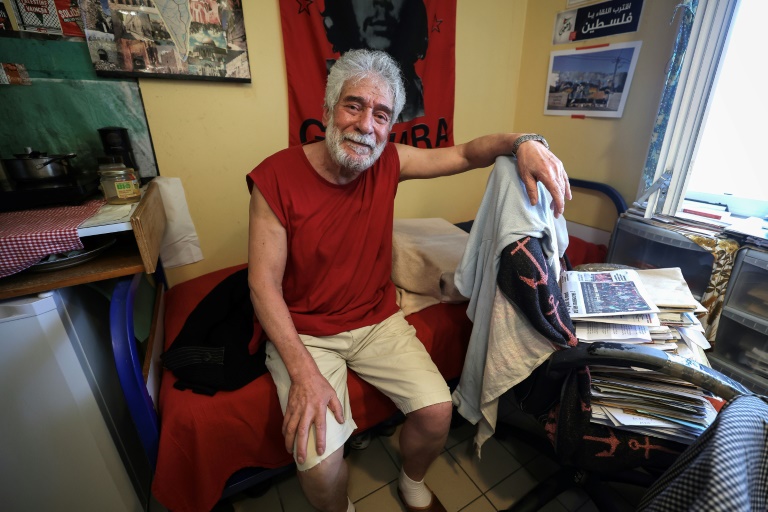A Life of Resistance and Long Imprisonment
Inside a small, 11-square-meter cell in Lannemezan prison in southern France, Georges Ibrahim Abdallah sat surrounded by symbols of his lifelong commitment to the Palestinian cause. The walls of his modest cell were adorned with a map of the world, a flag of Che Guevara, and various postcards that reflected his political beliefs. This space, though confined, became a testament to his enduring struggle.
Abdallah, now 74 years old, was released from prison this week after spending over four decades behind bars. He had been sentenced to life in prison in 1987 for his alleged involvement in the 1982 killings of two foreign diplomats in Paris—US military attache Charles Robert Ray and Israeli diplomat Yacov Barsimantov. He has consistently denied these charges.
Despite his long imprisonment, Abdallah maintained a strong sense of purpose. He described his time in prison as a period of continued activism, even if it was limited to the confines of his cell. “If I’m alive in front of you today, it’s because I’ve kept up the fight,” he said, emphasizing that without this commitment, the years would have been unbearable.
A Cell Filled with Symbols and Memories
Abdallah’s cell was not just a place of confinement; it was a personal sanctuary filled with reminders of his past and present struggles. A computer on his desk displayed a calendar that tracked significant events—green for birthdays, orange for visits, and brown for the deaths of comrades. Over the years, the color brown has increasingly dominated the calendar, reflecting the loss of many fellow militants.
He also kept a collection of images, including flowers like poppies and cherry blossoms, along with Palestinian flags and a photo of the Al-Aqsa Mosque in Jerusalem. These items served as a constant reminder of the cause he has dedicated his life to.
Abdallah was visited by Andree Taurinya, a member of parliament from the hard-left, on July 17. She used her right as a lawmaker to visit detention centers and see him on the day of his release. Dressed in a red sleeveless t-shirt and beige shorts, he greeted her warmly and posed for a selfie, showing a rare moment of joy amid years of hardship.
A Political Prisoner or a Criminal?
Abdallah, originally from Lebanon with Maronite Christian heritage, has always insisted that he is a “fighter” who fought for the rights of Palestinians, not a “criminal.” His case has been complicated by the involvement of the United States and Israel, both of which have opposed his release.
The U.S., as a civil party to the case, consistently objected to his release. The Israeli embassy in Paris criticized the decision, stating that “such terrorists, enemies of the free world, should spend their life in prison.” However, Abdallah views himself as a “political prisoner” and claims he was “pampered” compared to the conditions faced by those in Gaza and the West Bank.
His release comes at a time when Israel continues its war against Palestinian militants in the Gaza Strip, with aid and rights groups warning of potential mass starvation for civilians. Deadly settler attacks on Palestinians in the occupied West Bank have also become increasingly common.
A Legacy of Activism
Abdallah founded a Marxist anti-Israel militant group in his youth, which later dissolved. Despite this, he remains a vocal supporter of the Palestinian cause. He has endorsed recent protests calling for a ceasefire in Gaza, emphasizing that “Palestine remains the historical lever of the revolution throughout the Arab world.”
Though he will soon return to Lebanon, Abdallah does not foresee a radical change in his outlook. For him, the struggle continues, even beyond the walls of his prison cell. His story is one of resilience, resistance, and an unwavering commitment to a cause that has defined his life.







